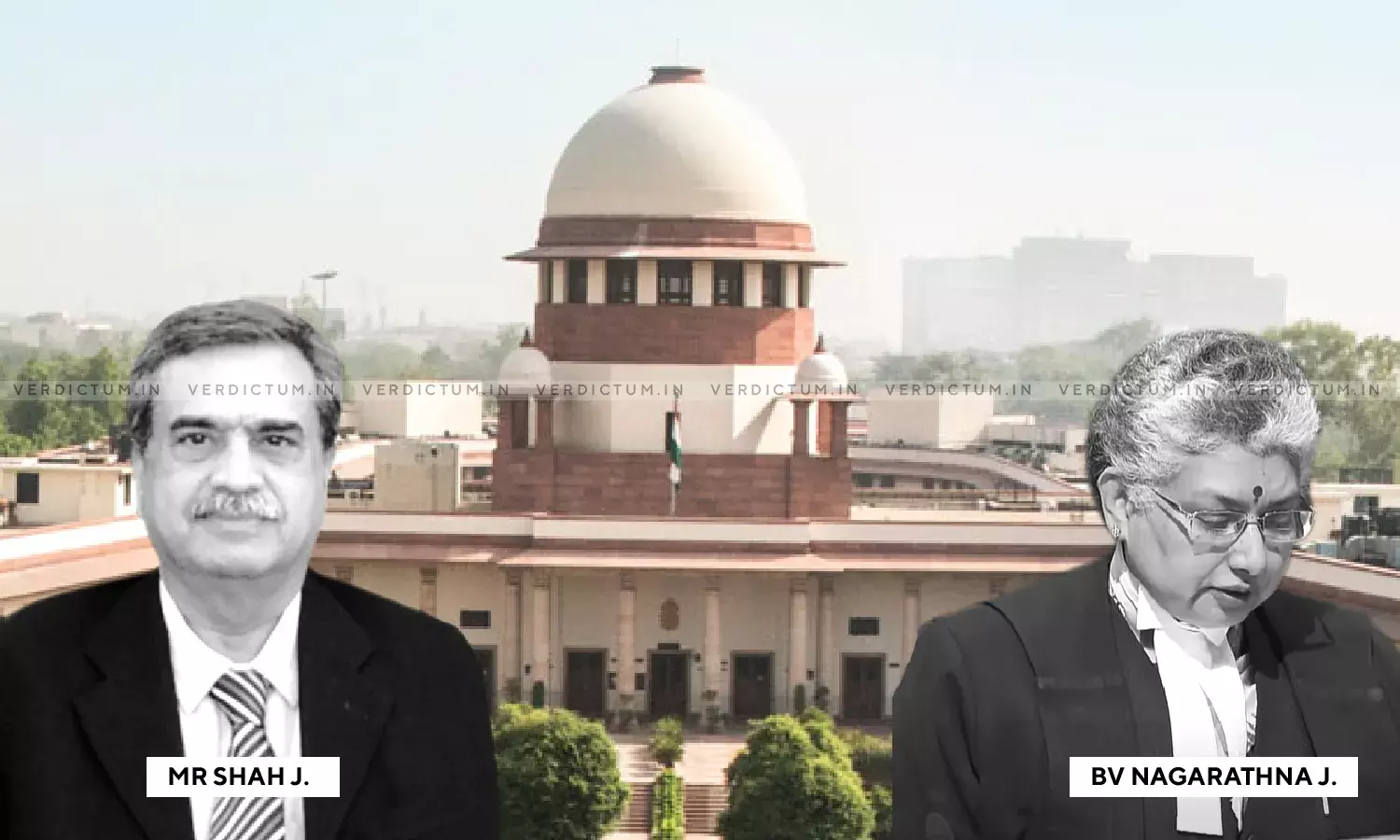Mere Referral Of Matter To Lok Adalat Does Not Affect Genuineness Of Consent Decree - Supreme Court

A Supreme Court Bench comprising of Justice MR Shah and Justice BV Nagarathna set aside a judgment passed by the Karnataka High Court opining that "Merely because the learned Trial Court, before whom the application was presented, referred the matter to the Lok Adalat, cannot be a ground to doubt the genuineness of the consent decree."
Advocate Anand Sanjay M. Nuli appeared for Appellant while Senior Advocate Shri SN Bhat appeared on behalf of the Respondents.
In this case, the Plaintiff and Respondents submitted an application under Order XXIII Rule 3 CPC, in which it was stated that the parties have settled the dispute and it was requested to pass a consent decree. The Respondents admitted the execution of the agreement to sell in favor of Plaintiff and admitted receipt of a part of the sale consideration. In the application under Order XXIII Rule 3 CPC, it was specifically stated that the Respondents have received the remaining sale consideration amount Plaintiff. Therefore, it was requested to pass the decree as prayed for in the suit as well as in terms of the compromise petition.
The compromise petition was signed by the Advocates for the parties. However, instead of decreeing the suit passing a consent decree, the learned Trial Court referred the matter to Lok Adalat. The Trial Court passed a consent decree as per the application under Order XXIII Rule 3 CPC. However, it was challenged before the High Court on the grounds that the consent decree was obtained by fraud. The High Court set aside the consent decree.
The Supreme Court opined that "Many a time, it happens that for whatever reason, instead of passing the decree/consent decree in the Court, the matter is referred to the Lok Adalat and directed to be placed before the Lok Adalat and therefore, a consent decree was passed as prayed by the parties. The aforesaid procedure adopted in the instant case cannot be a ground to doubt the genuineness of the consent decree. From the aforesaid, it cannot be said that there was a fraud committed and/or the counsel on behalf of the plaintiff to mislead the Court to refer the matter to the Lok Adalat."
Therefore, the Supreme Court found that the High Court had committed a grave and serious error in setting aside the consent decree. To that end, the judgment passed by the High Court was set aside.
Click here to read/download the Judgment

